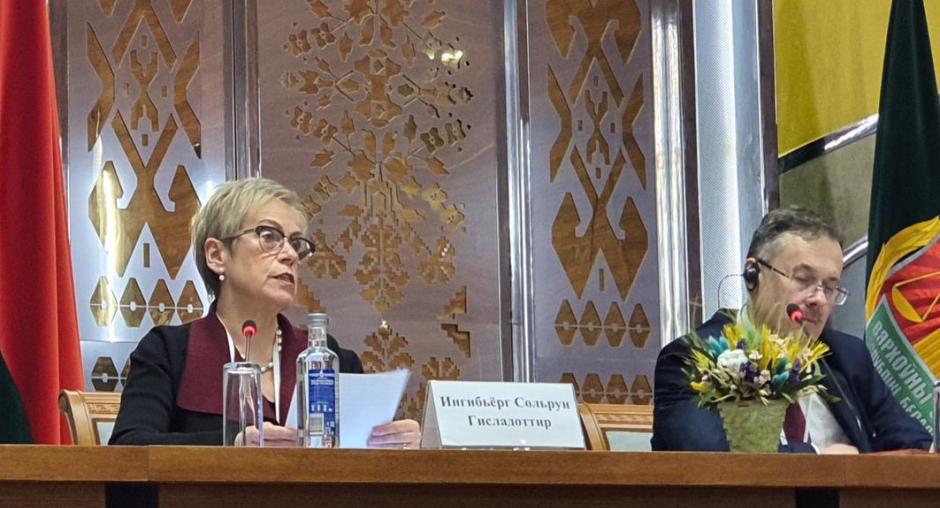ODIHR encourages Belarus to continue work on strengthened judicial independence, promotion of human rights and support for women leaders

Greater efforts and co-operation are needed to achieve a more independent justice system, educate citizens about human rights and strengthen women’s leadership in Belarus, said Ingibjörg Sólrún Gísladóttir, Director of the OSCE Office for Democratic Institutions and Human Rights (ODIHR), addressing participants at a rule of law conference in Minsk on 27 February 2020.
“ODIHR and the Belarusian authorities have built up a solid partnership over the last three years, and I believe that continued co-operation would be mutually beneficial,” said Gísladóttir. “At the same time, it is clear that much remains to be done to address the current shortcomings in the protection of human rights and judicial independence, as well as to fully engage civil society in this process. Our further co-operation therefore depends on the development of more ambitious activities to strengthen democratic institutions, judicial independence and human rights.”
The conference in Minsk marked the conclusion of the two-year ODIHR project “Promoting Democratization and Human Rights in Belarus” funded by the European Union. The event, co-organized by ODIHR, the Supreme Court of Belarus and the Council of Europe, with the support of the Ministry of Foreign Affairs of the Netherlands, focused on access to justice in civil and commercial disputes.
“We have touched upon a whole range of topics that are relevant for us today, and an active exchange of opinions, ideas and experiences between representatives of our legal system and legal systems of other states, and representatives of international organizations, took place throughout the project,” said Valery Kalinkovich, First Deputy Chairperson of the Supreme Court. “During today’s conference we will jointly develop certain recommendations, which will be used as part of future work on OSCE projects.”
The project’s rule of law activities included seminars and study visits, focusing on issues such as e-justice, appeals and cassation procedures, juvenile justice, as well as access to court, facilitating in this way the respect of the right to a fair trial of Belarusian citizens. These seminars and study visits benefited more than 200 legal professionals, both women and men, from across the country.
As part of the project, ODIHR also provided expert assistance to Belarus in setting priorities for human rights education. The Office has been training Belarusian experts and supporting the development of human rights education curricula with teaching tools for secondary general, vocational and specialized secondary, university and post-diploma educational levels. ODIHR supports human rights education that helps raise respectful, caring and active individuals ready to stand for their own rights and the rights of others; it is a way to build up a human rights culture that makes schools and universities safer, more democratic and open.
Strengthening the leadership abilities of women and gender equality advocates was another focus of the project. This included activities to support women’s leadership in parliament, on the local level, and among young women. These activities showed that ODIHR interventions could assist young women in breaking the glass ceiling and pursuing their careers and dreams to their full potential, building a momentum for change within the whole society.
The project`s objective was to assist Belarus in meeting its OSCE commitments in the areas of the rule of law, human rights and the equal participation of women in democratic processes. The project was implemented in co-operation with the ministries of foreign affairs, education and labour, and the Supreme Court and with the support of the EU. ODIHR`s assistance to Belarus was based on its mandate to defend democracy and the Office’s extensive experience in democratization and human rights work across the OSCE region.
